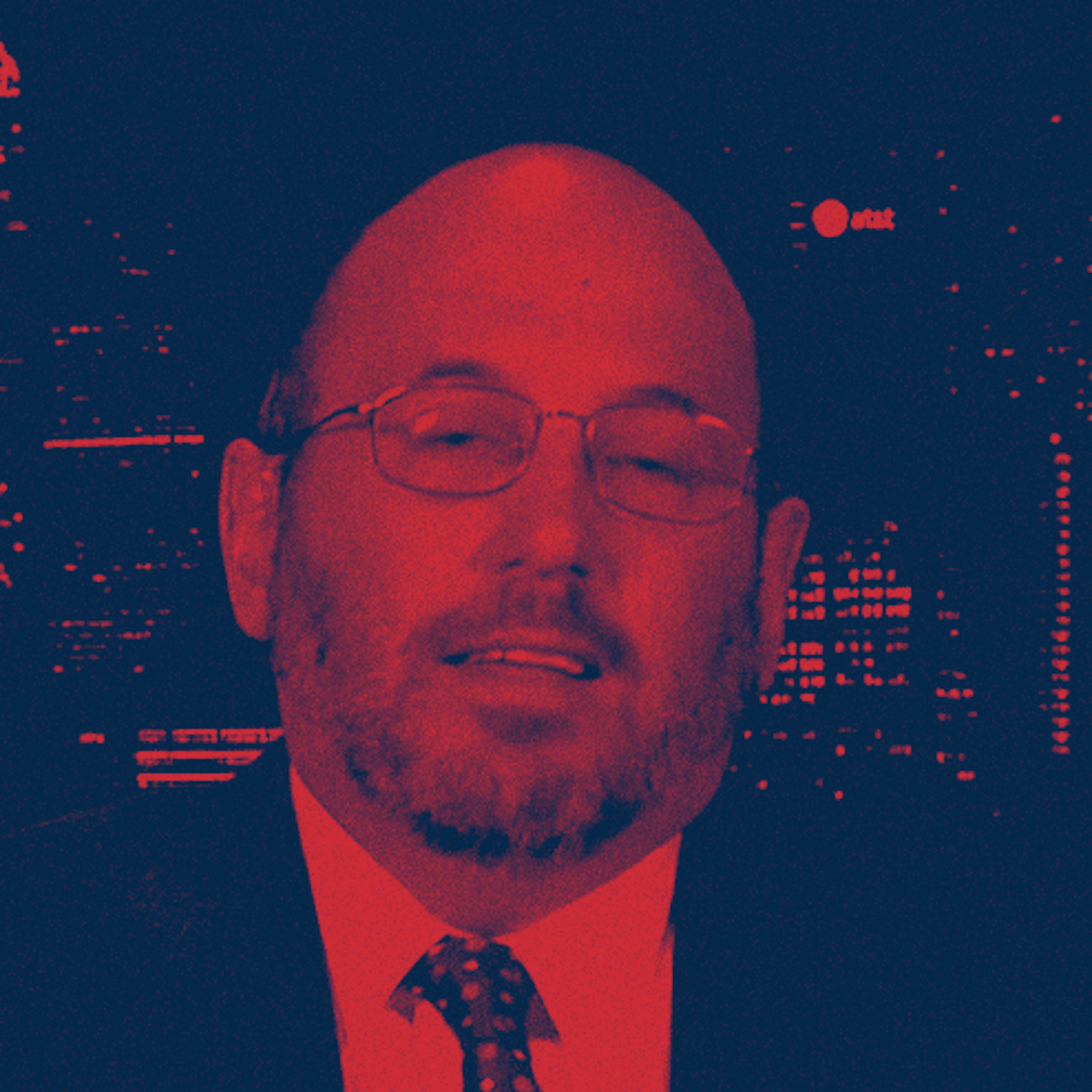Amid the uproar of Donald Trump’s seemingly impossible rise to the highest office in the land, liberals hungered for an authoritative voice. They found it in Newsweek writer Kurt Eichenwald, a former Republican who regularly deals in histrionics, bombast, and questionable ethics. Eichenwald, whose self-hyped pieces have nary broken news, has become infamous both for his wrongness and for his regular Twitter meltdowns. And yet, he has more than 200,000 followers on Twitter, a legion of influential fans, and is a frequent guest on cable news. Why has a bad and possibly corrupt journalist become a voice of the left? In all of his essence, Kurt Eichenwald is the journalist that the left deserves, and maybe it’s time for his wild media ride to end.
Eichenwald had a strong start as a newsman. He worked at The New York Times for more than 20 years, where he had a decorated career covering Wall Street, malpractice in kidney dialysis facilities, for-profit hospitals, and the fall of Enron. His run might have been remembered as a triumph of solid journalism, with Eichenwald cast as a modern Upton Sinclair. But, much like H. L. Mencken’s reporting on the Scopes Trial was later tarnished by his anti-Semitism, Eichenwald’s mainstream success led to a dramatic and tawdry fall that served to reduce his accomplishments to little more than a footnote.
In 2005, while still at the Times, Eichenwald switched his focus from business coverage to the seedy underground of online child pornography. Through a random search, he apparently discovered a website run by an 18-year-old named Justin Berry, who had been selling pornographic images and webcam shows of himself and other teen boys to pedophiles since the age of 13. In order to get Berry to meet him in real life, Eichenwald for some reason posed as a fan and subsequently convinced the young man to help him expose the child porn industry in the Times. Berry cooperated with Eichenwald for the article and, prior to publication, turned in a number of his associates in exchange for immunity to prosecution. The resulting story, titled “Through His Webcam, a Boy Joins a Sordid Online World,” led to two arrests, a Congressional hearing, and an episode of Oprah. It was a brief triumph for Eichenwald.
But in the months after publication, it was revealed that Eichenwald had failed to mention some pertinent details in how he went about reporting the story. Like how, in order to convince Berry to meet with him in real life, Eichenwald pretended to be an aging rock star. (Berry, for no explicable reason, assumed Eichenwald was Don Henley.) And how Berry and his business partner subsequently asked the journalist for, and were given $2,000, before meeting with him. This was something the editors at the Times had a problem with. As New York magazine reported in 2007, Eichenwald had asked Berry to give the money back when he started reporting the Times story, fearing a conflict of interest, but unfortunately even loaning money to a source is still unethical according to Times policy. Berry refused and kept the cash, along with an additional $1,100 Eichenwald sent him over PayPal, which the journalist later claimed not to remember sending due to epileptic seizures, according to New York. Eichenwald maintains that he only originally intended to “rescue” Berry, not report on him, and decided to write about his story many months after he sent him money.
In 2005, while still at the Times, Eichenwald switched his focus from business coverage to the seedy underground of online child pornography.
(As Jack Shafer put it in Slate: “Eichenwald didn’t consider himself a reporter when he contacted Berry. He didn’t consider himself a reporter when he sent Berry money. He didn’t consider himself a reporter when he flew to Los Angeles to meet Berry. He didn’t consider himself a reporter even when he told Berry he worked for The New York Times. But presto chango, he was a reporter as soon as Berry decided he wanted out of porn.”)
The damage was done. Sometime in the fall of 2006, Eichenwald left the Times for reasons unclear, and a few months later an editor’s note appeared on the story: “Times policy forbids paying the subjects of articles for information or interviews.”
Despite the weird black smear on his resume from paying a source who happened to be a child pornographer, Eichenwald’s post-Times career managed to pick up because men, especially those legitimized by The New York Times, fail upward. In 2009, his book The Informant was turned into a movie starring Matt Damon. In 2012, he published 500 Days, a nonfiction book about the aftermath of 9/11. Also that year, Vanity Fair hired him as a contributing editor. There, Eichenwald diverged from his passions of corporate malfeasance and child porn and started writing about American politics.
Eichenwald’s political beliefs are no more stable than his sense of journalistic ethics. At Vanity Fair, he adopted a particularly myopic form of liberalism that demanded unconditional loyalty to the Democratic party. Despite his rebranding as a strident partisan voice, his political allegiances were unclear until a few years ago. What did this guy believe, and did he really believe it? As a finance reporter, he was discouraged by the Times from letting his personal biases color his writing, but his continued highlighting of Medicare fraud during a time of widespread cuts to the social safety net seems to suggest a conservative streak. Although he frequently lashes out at third-party voters on Twitter and continues to blame Ralph Nader for the election of George W. Bush in 2000, he admitted on Twitter to voting for Bush himself (although he later revised this to say he almost voted for Bush in 2000 but ended up voting for him in 2004). Without a conversion narrative to explain his sudden change of heart, one has to assume one of two things: either he foresaw Obama’s historical victory and decided to jump on the bandwagon for the sake of his career, or he saw a common thread between the Bush and Obama administrations that allowed him to switch loyalties without compromising his strongest held beliefs.
In 2013, Eichenwald began writing for Newsweek, a barely existent magazine that has been sold twice in the last six years, once to nonagenarian businessman Sidney Harman, who died eight months later, and once to IBT Media, which has since laid off 10 percent of its staff with little to no severance pay. There, Eichenwald has continued to profess his love for the security state, bash Edward Snowden, and affect the pompous Aaron Sorkin voice that liberals love. But Eichenwald really hit his stride as a new-media journalist when Donald Trump emerged as the frontrunner in the Republican primaries last year, his media status rising along with the president-elect’s in a sick symbiosis. Eichenwald began devoting his Newsweek inches to vapid Trump takedown pieces. He wasn’t alone; Trump’s steady climb in the polls frightened a lot of centrist dweebs, most of whom reacted with cornball monologues and attacks that played right into The Donald’s hand. (He’s not a politician! He’s Dangerous Donald!) Eichenwald’s output became a mix of genuine, yet ultimately ineffective, muckraking (“Donald Trump’s Many Business Failures, Explained”) and signal boosts of failed Clinton campaign strategy. He readily latched onto the “Bernie Bro” smear and published a hysterical attack on Bernie Sanders on May 18, a month after Clinton’s primary victory in New York essentially guaranteed her the party nomination.
As the drama of the election heightened, Eichenwald’s Twitter behavior, previously odd, became absolutely erratic. In September, he tweeted, “I believe Trump was institutionalized in a mental hospital for a nervous breakdown in 1990, which is why he won’t release medical records.” When pressed on the provenance of this supposition, he deleted the tweet and ignored repeated requests for comment; later, he said that the tweet was a message to a source to signal that he wanted to talk. Okay. On election night, Eichenwald took to Twitter to drum up fears of a global economic collapse, claiming that he sold all his stocks months ago fearing what Trump would do to the stock market. (“Earliest projections: At least one trillion dollars of investment value has been wiped out tonight. So far.” 5,300 retweets.) After a brief fall, the Dow Jones and NASDAQ both bounced back. Two days later, Eichenwald implied that Pepe the Frog was a Russian propaganda tool, to 6,000 retweets. After his election myths article went up, he spent the next month complaining about people criticizing him from the left, claiming four separate times that Sanders supporters were more vicious than the Nazis of the alt-right; again, thousands of retweets. Other highlights include his calling General James Mattis, a right-wing hero, a “good choice” for secretary of defense, a proclamation that all protest voters are rich and white, and yet again placing blame on Nader for electing Bush when Eichenwald voted for Bush.
Mid-December was when Eichenwald really began to lose it. On Dec. 9, he tweeted that people should treat Trump voters with civility and that he was proud of his son for making friends with Trump supporters at college. On Dec. 15, he appeared on Tucker Carlson Tonight, where he was easily outclassed by Carlson, a man who was eliminated in the first round of Dancing With the Stars. Carlson, in a segment on the state of journalism, asked Eichenwald to explain his turbulent behavior on Twitter, at which point Eichenwald held up a pre-prepared binder labeled “Tucker Carlson Falsehoods.” Asked for comment on his since-deleted allegation that Donald Trump was institutionalized in 1990, he danced around the question to Carlson’s bemusement. Eichenwald spent the remainder of the nine-minute segment going on various tangents, including a long-winded explanation of a prescription Trump had in 1982 and a story about CIA agents having dinner at Eichenwald’s house.
Later that night, in response to Eichenwald’s television appearance, Twitter user “@Jew_Goldstein” replied to one of Eichenwald’s tweets with a flashing GIF animation overlaid with the text “you deserve a seizure for your posts.” In response, Eichenwald’s wife tweeted that her husband actually had a seizure due to the tweet, and that the user’s information had been forwarded to the Dallas police. In the following days, Eichenwald filed a civil suit and successfully subpoenaed Twitter for the release of @Jew_Goldstein’s personal information. This incident and his impassioned reaction earned Eichenwald more media coverage than he had received since the Justin Berry days. TIME, BBC News, The Washington Post, even Eichenwald’s adversaries at Russian state TV made sure to amplify his grievances. Just over a week later, he was back on MSNBC giving host Jonathan Capehart advice on dealing with Trump: “We have got to stop covering his tweets like they’re news.”
Eichenwald’s 2016 output is a scale model of the failures of the liberal elite. If Eichenwald is the voice of anything, it is of the sickness that plagues the Democratic Party. It’s all there: whitewashing of Bush-era war criminals because they presented mild criticism in anticipation of a Trump loss; a seething hatred of anyone unenthused about center-right technocrats; the portrayal of social media arguments as cataclysmic events; the steadfast refusal to accept that Hillary Clinton lost because she felt entitled to the presidency and decided not to campaign in Michigan, Wisconsin, or rural Pennsylvania; and, last but not least, a fixation on Russian interference with the election, which, at best, explains a small fraction of the loss in Democratic turnout. The only way forward for the Democratic Party is to dump the dead weight — the Iraq War backers, the overrepresented white Baby Boomers, the egotistical social media train wrecks, and, most importantly, anyone with a sex scandal in their Wikipedia article. Let’s start with Kurt Eichenwald.
We contacted Eichenwald for comment. As of press time he had not responded.





